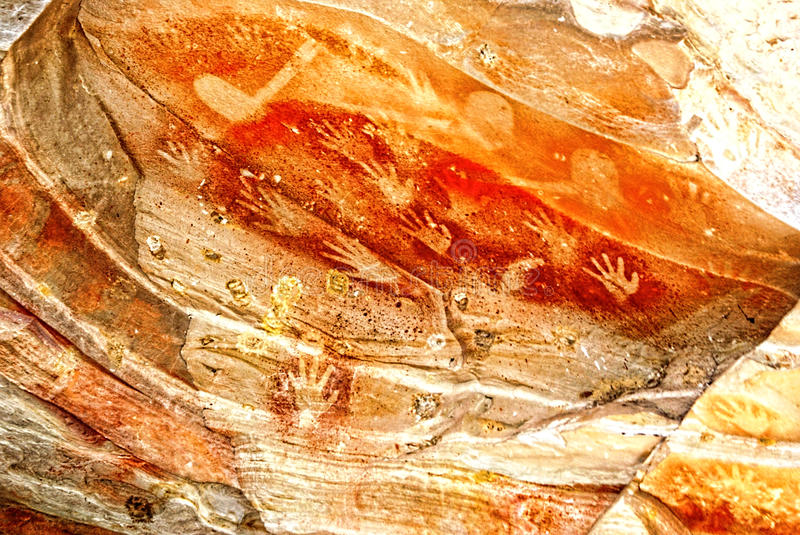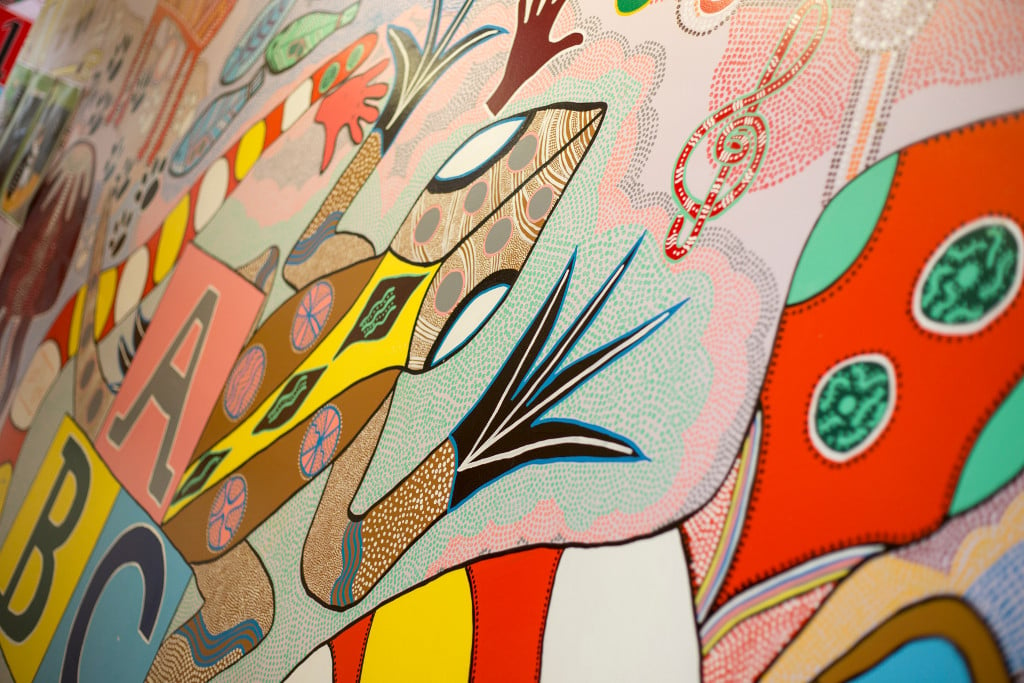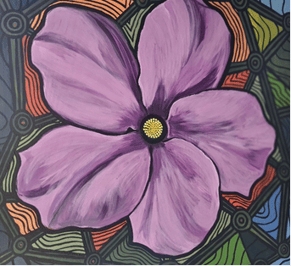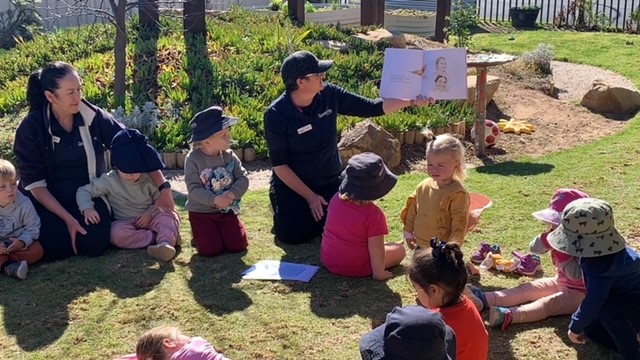More than a word. Reconciliation takes Action.
Reconciliation Week 27th May – 3rd June 2021
This year marks the 20th year of Reconciliation Australia, and the theme for 2021, More than a word. Reconciliation takes action, urges the reconciliation movement towards braver and more impactful action.

'It is an opportunity to remind ourselves to stop and take time to reflect on our past, present and future in how we commit to moving forward towards reconciliation.' Says Nicole Jones, Gowrie NSW CEO.
Gowrie NSW takes enormous pride in acknowledging and exploring Reconciliation Week and Sorry Day with educators and children in early and middle childhood.
We are deeply committed to reconciliation and recognise the special place that Aboriginal and Torres Strait Islander peoples hold within Australia and acknowledges that they are the First Peoples of the land we share today.
Our proud history of social justice and social inclusion means we will continue to build on this rich history by being a leader in Education and Care programs and championing Aboriginal and Torres Strait Islander cultures and diversity.
How we talk to children about Reconciliation
Hannah, Centre Director from Gowrie NSW Malabar EEC shares. ‘Reconciliation has exerted a profound influence on everyday lives of children, families and the community of Malabar enriching our centres teaching experiences. More importantly, we recognise that the rich culture and history of reconciliation has impacted our practices enormously.
‘We value the knowledge that children bring to our setting and embed Aboriginal perspectives into our centre's practices in an authentic way, cherishing the culture's heritage in our Malabar community. Reconciliation calls for us to act together and work together with our children, families and community to build a better community we live in.
‘For Reconciliation Week we will be reading stories to the children, also using these stories as provocation for art experiences.'

The Gowrie NSW Malabar Early Education and Care Centre will welcome an Indigenous visitor – to demonstrate how to use Ochre. Ochre is Ochre is one of the principal foundations of Australian Indigenous art. Ochres are primarily natural pigments and minerals found in the soil, or even in charcoal. These natural pigments (colours) were originally used to depict Dreamtime stories and maps. They were used either in body painting, rock painting, on artefacts and sometimes even on sand.
Hannah explains ‘We will engage with face painting and art experiences with the ochre. The preschool children currently enjoy tracing the indigenous symbols in sand trays, we will extend on this and support the children to make their own story using these symbols, making a book.’
Aimee from Clemton Park EEC shares their Reconciliation Week experiences.
‘We will read books, talk about the history using technology including video and audio stories.
‘We will have an indigenous elder come to the centre to talk to the children about their culture, share their story, teach them some words and spend some time at the centre with our children
Cindy from Discovery House EEC shares down how their centre will educate different age groups.
'In the babies room, we will read books and have conversations about the first people, introducing Aboriginal arts to the children.'
‘Toddlers will have group time at “Meeting Place incorporating different aspects of Aboriginal cultures. We will read books about Aboriginal stories, and work towards an embedded acknowledgment of country in group time.'
‘Our preschoolers will enjoy hand painting and reading books about “Sorry Day'
Reconciliation is about taking action
‘…and acknowledging Aboriginal people’s loss and suffering. Showing respect for them and their young generations… advocating for their rights and telling a genuine story about their history’ says Cyndy from Discovery House EEC.
‘As educators, we need to think of how we can help our community in developing empathy across the service, and tell the truth about country history while delivering topics about reconciliation. ‘
What reconciliation means to me
The support and centre staff from Gowrie NSW were invited to share what Reconciliation means to them. Here are just a few words.
'For me, reconciliation is about deep listening and authentic action' Nicole Jones, CEO
'Reconciliation comes from the word to reconcile which means to restore friendly relations between parties. In the spirit of National Sorry day, this word brings a deeper meaning. It brings restoration of relationship within parties involved by mending the bridges that were broken in the past' Meike McDermott, ELC Wagga
'Reconciliation to us means the strengthening of relationships and the ongoing process of coming together as one. It could also be seen as all individuals having the same rights, access to resources, equality and equity. As educators, we have the strength, resources and abilities to promote this within our centre to ensure everyone is treated equally and fairly'. Stgeorge ELC
'For me, reconciliation is a deep reconnection with past that happens in present and allows for future to unfold'. Dasha Ellery, Erskineville Early Education and Care.
'Acknowledgment, understanding, coming together, listening, Respect' Lauren Burrows, Mayfield Early Education and Care
'Reconciliation for me is to ensure we adjust our thoughts to demonstrate unity and compatibility in our day to day interactions for a peaceful and respectful coexistence Rekkha Moda, Drummoyne Outside of Hours School Care
To me reconciliation is about peace and forgiveness and an opportunity to move forward with positive intentions and actions'. Sophia Mackie
'We celebrate Reconciliation Week every year to embed Aboriginal perspectives into the centre. We pay respect to Aboriginal and Torres Strait Islander people by celebrating during this week. For National Sorry Day we have been having grouptime to discuss and share perspectives with the children about The Stolen Generation'. Sravanthi Burwood ELC

A parent's perspective
‘I think it is about educating yourself on the history of the land that you live on. Colonialism and the ongoing effects of inexcusable political actions are harrowing and confronting. Education plays a major part in the healing that needs to occur. I think Gowrie does a good job in raising awareness and celebrating culture for young children. I hope that this generation is better informed and that Indigenous culture and the impact of colonial history are a standard part of the school curriculum, unlike when I was in high school.'
Gowrie Mayfield Early Education and Care Parent
 A family from Gowrie Mayfield has shared a special piece of artwork painted for Reconciliation Week. This family is a part of our Awabakal Tribe in Newcastle and this is the poisonous Desert Rose plant
A family from Gowrie Mayfield has shared a special piece of artwork painted for Reconciliation Week. This family is a part of our Awabakal Tribe in Newcastle and this is the poisonous Desert Rose plant
The Desert Rose is known as the Stolen Generation flower because it is found widely across Australia and it is a survivor. Its colour denotes compassion and spiritual healing.
The painting will be hung in the foyer.
We look forward to sharing more of what the early and middle childhood services have been exploring during Reconciliation Week 2021.











.jpg)